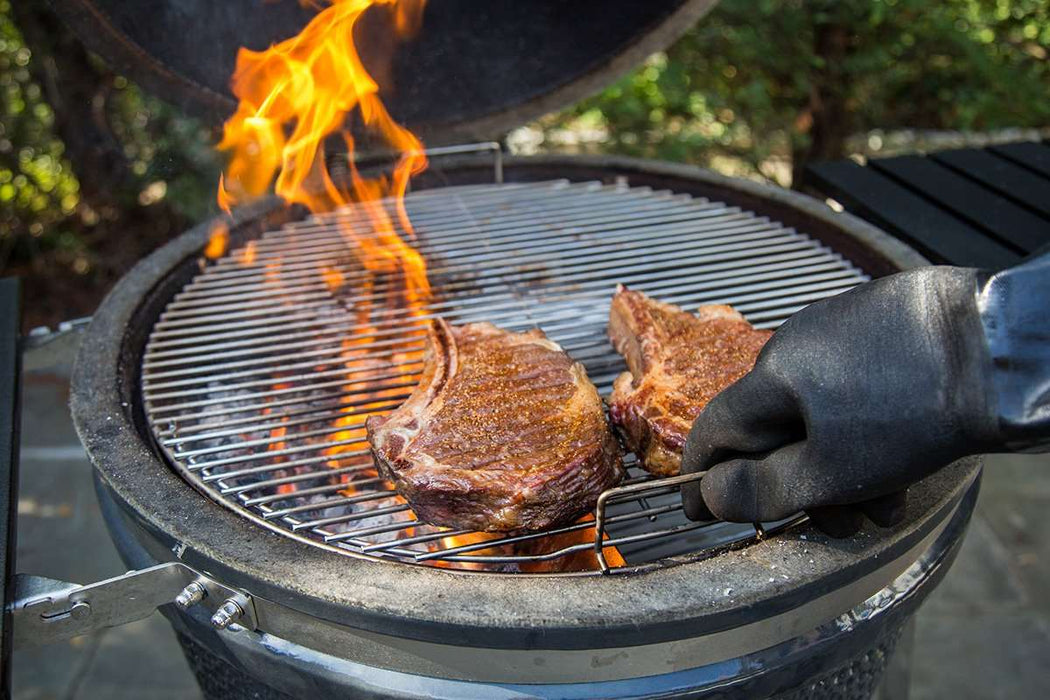Aluminum Grill Grates Pros and Cons for BBQ Lovers
Written By James Morgan
For barbecue enthusiasts, choosing the right grill grates is a crucial decision that can impact the flavor and quality of your grilled dishes. Aluminum grill grates pros and cons are often debated among grillers, and understanding these can significantly enhance your grilling experience. We delve into the advantages and disadvantages of using aluminum grill grates, helping you decide if they are the right fit for your barbecue needs.

The Appeal of Aluminum Grill Grates
Aluminum is a lightweight metal known for its excellent thermal conductivity. This means that it can heat up quickly and distribute heat evenly across the cooking surface. For BBQ lovers, this translates to more consistent cooking results. Additionally, aluminum grill grates are resistant to rust, which can be a significant advantage for those who grill frequently and live in humid climates. Their resistance to corrosion ensures that they maintain their integrity over time, providing long-lasting use.
Another notable benefit of aluminum grill grates is their ease of maintenance. Unlike cast iron grates, which require regular seasoning to prevent rust, aluminum grates are virtually maintenance-free. This convenience can appeal to those who prefer a hassle-free grilling experience. Furthermore, aluminum grates are often less expensive than their stainless steel or cast iron counterparts, making them a cost-effective choice for budget-conscious grillers.
Drawbacks of Aluminum Grill Grates
While there are several advantages to using aluminum grill grates, it's essential to consider the potential downsides. One of the primary disadvantages is that aluminum grates are generally less durable than cast iron or stainless steel. The lightweight nature of aluminum means it is prone to bending or warping under high heat, which can affect the cooking surface and the quality of your grilled food.
Additionally, aluminum grill grates may not provide the same level of heat retention as heavier materials. This can lead to longer cooking times and potentially uneven cooking if the grill is not monitored closely. For those who enjoy achieving perfect grill marks, aluminum may not deliver the same results as cast iron grates, which excel in heat retention and searing.
Comparing Aluminum to Other Grill Grate Materials
When it comes to grilling, the choice of grate material can significantly impact your cooking results. While aluminum offers certain advantages, it's essential to compare it with other popular materials like stainless steel and cast iron. Stainless steel grates are known for their durability and resistance to rust, offering a balance between weight and heat retention. Though typically more expensive than aluminum, stainless steel grates provide a long-lasting grilling surface.
Cast iron grates, on the other hand, are prized for their superior heat retention and ability to produce excellent sear marks. They require more maintenance, such as regular seasoning, to prevent rust, but many grillers appreciate the unparalleled cooking performance they offer. When considering aluminum grill grates pros and cons, it's essential to weigh these factors against your grilling habits and preferences.
Choosing the Right Grill Grates for Your Needs
The decision to use aluminum grill grates ultimately depends on your specific grilling needs and preferences. If you prioritize ease of maintenance and affordability, aluminum may be the right choice for you. However, if you are looking for durability and superior searing capabilities, you might want to consider investing in stainless steel or cast iron grates.
For more insights into choosing the right grill grates, check out this comprehensive guide, which offers valuable tips and comparisons. Additionally, understanding the science behind grill grates can further enhance your grilling prowess. Explore the science of grill grates to make an informed decision.

FAQ
Are aluminum grill grates safe to use?
Yes, aluminum grill grates are safe to use. They are designed to withstand high temperatures and are resistant to rust, ensuring safe cooking over time.
Do aluminum grill grates require seasoning?
No, unlike cast iron grates, aluminum grill grates do not require seasoning, making them a low-maintenance option for grillers.
How do aluminum grill grates compare to stainless steel?
While aluminum grill grates are lightweight and affordable, stainless steel grates offer greater durability and heat retention. The choice depends on your grilling preferences and budget.



